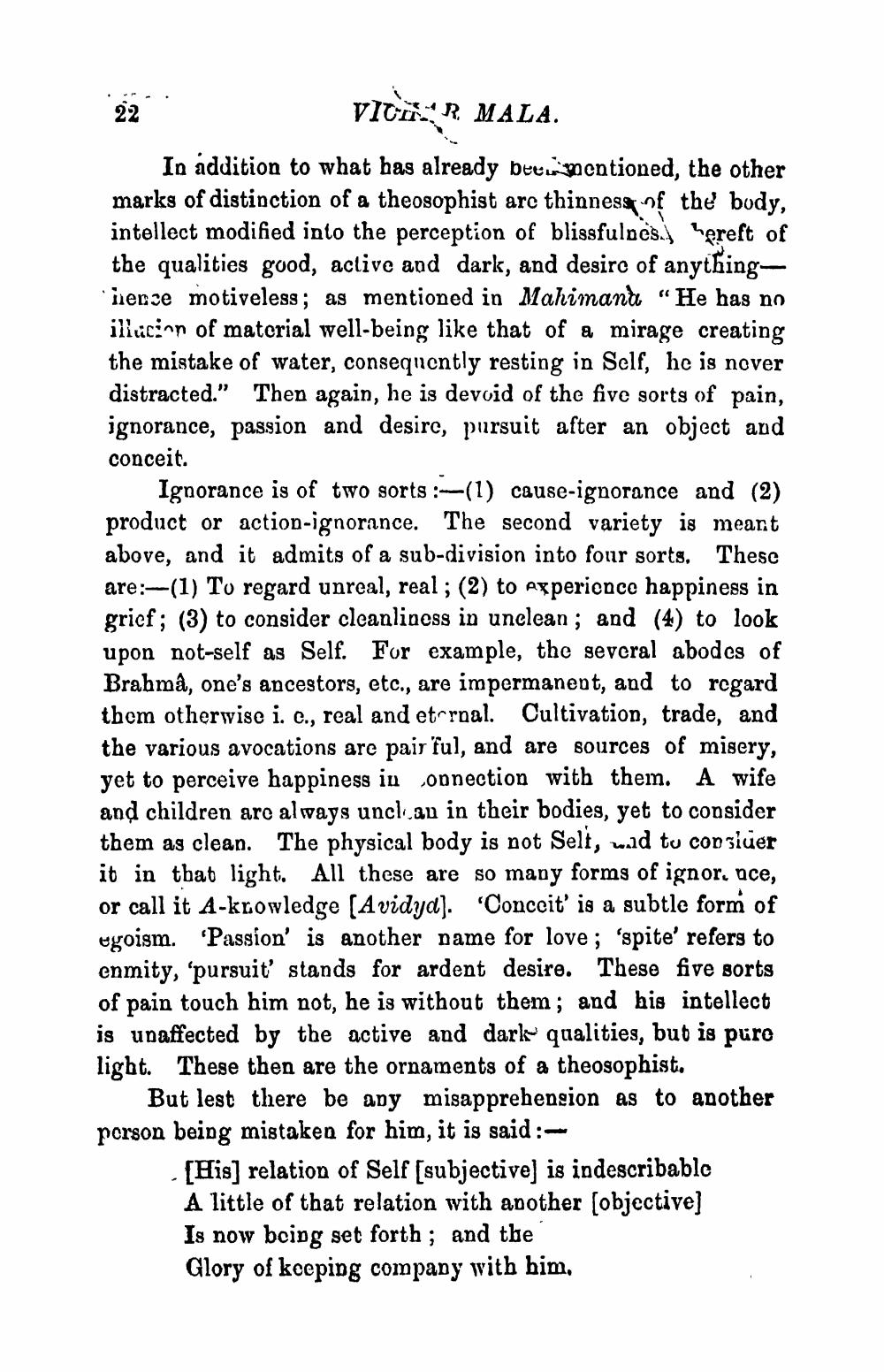________________
22
VICTR MALA.
In addition to what has already been mentioned, the other marks of distinction of a theosophist arc thinness of the body, intellect modified into the perception of blissfulnes hereft of the qualities good, active and dark, and desire of anythingherce motiveless; as mentioned in Mahimana "He has no illacion of material well-being like that of a mirage creating the mistake of water, consequently resting in Self, he is never distracted." Then again, he is devoid of the five sorts of pain, ignorance, passion and desire, pursuit after an object and conceit.
Ignorance is of two sorts:-(1) cause-ignorance and (2) product or action-ignorance. The second variety is meant above, and it admits of a sub-division into four sorts. These are:-(1) To regard unreal, real; (2) to experience happiness in grief; (3) to consider cleanliness in unclean; and (4) to look upon not-self as Self. For example, the several abodes of Brahmâ, one's ancestors, etc., are impermanent, and to regard them otherwise i. c., real and eternal. Cultivation, trade, and the various avocations are pair ful, and are sources of misery, yet to perceive happiness in onnection with them. A wife and children are always unclean in their bodies, yet to consider them as clean. The physical body is not Selt, and to consider it in that light. All these are so many forms of ignor. uce, or call it A-knowledge [Avidya]. 'Conceit' is a subtle form of egoism. 'Passion' is another name for love; 'spite' refers to enmity, 'pursuit' stands for ardent desire. These five sorts of pain touch him not, he is without them; and his intellect is unaffected by the active and dark qualities, but is pure light. These then are the ornaments of a theosophist.
But lest there be any misapprehension as to another person being mistaken for him, it is said:
-
[His] relation of Self [subjective] is indescribable
A little of that relation with another [objective]
Is now being set forth; and the
Glory of keeping company with him.




